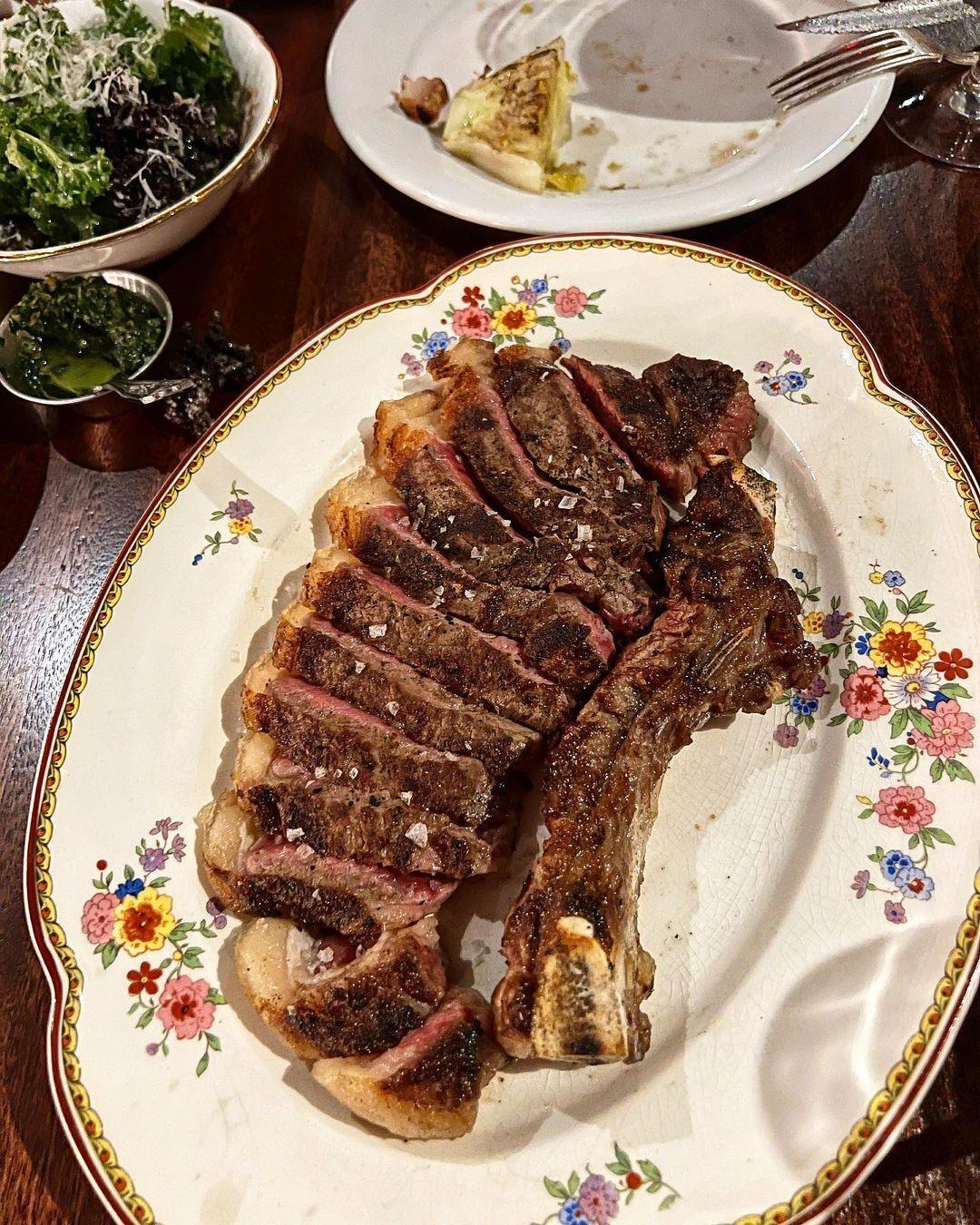Meat is for men – it’ll put hair on your chest, it’ll make you more of a red-blooded male, it’ll fill you with piss and vinegar and guarantee that you’re ready to throw hands at the next person who crosses you. At least, that’s what men like Jordan Peterson would like you to think. The Canadian psychologist – who swears by a regimen in which he eats beef, and only beef – is one of many people who has taken on a “carnivore diet” in the last couple of years. This is, quite obviously, not recommended on a psychological or physiological level. And it’s just the sort of misguided machismo to be expected from a man who’s been dubbed the “custodian of the patriarchy” by the New York Times.
Meat has a long and storied relationship with masculinity. According to research conducted by the Gender and Society journal on the gendering of foods, there are “entrenched associations between masculinity and meat” that tends to represent an excess that directly opposes “supposedly feminine discourses of gourmet food and dieting for weight loss”. Men are supposed to eat meat. And a lot of it. Whereas women, on the other hand, are expected to cut back on not just their meat consumption but their consumption of all food in general.
Despite it being 2022, our culture is still painfully uncomfortable with the idea of the female appetite. Not in a “too full to fuck” kind of way, but rather in the continual portrayal of female indulgence and consumption as aberrant behaviour. Look at the comments section of any mukbang video on YouTube and you’ll quickly see how a woman eating is something that’s both highly fetishized and seen as behaviour that’s against the norm.
Men, however, are encouraged to eat as much as possible and embrace a devil-may-care, gourmand lifestyle. As long as what they’re eating isn’t copious bowls of salad, mind. Just take Ernest Hemingway eating a “lion marinated in sherry with some herbs and grilled over N'bebia's cookfire” as a prime example of that lauded male appetite in action. Hemingway was – and still is – upheld as an exemplar of rugged masculinity. He’s a man who writes with honesty and truth and his prose is often read as a representation of who he was as a person. Which, if we’re to believe written accounts of him, is a strong bearded man who ate strong manly things like steak, elk, and, er, lion. Although Hemingway doesn’t stand for all men, he is still considered by many to be an aspirational figure of masculinity and there is hard data to back up the fact that men are much more fond of meat than women. Research published last year found that men’s meat-heavy diets cause 40% more climate emissions than women’s.
In the US, one survey of 11,000 people found that just 24% of vegans were men. That skewed ratio can be seen on a global scale where there are significantly fewer male vegans and vegetarians in most countries of the world. Statistics from the Vegan Society collected in 2016 indicated that there were twice as many more vegan women than vegan men in the UK. The reason for that female domination of vegetarianism and veganism isn’t totally clear but I'd hazard a guess that it’s probably got something to do with how painfully fragile most men’s sense of masculinity is.
Meat is seen as a food eaten by “real men” and devouring it can be read as an affirmation and performance of masculinity in a world where men like me are constantly afraid of losing their manly status. In contrast, not eating meat or animal products is behaviour that’s seen as feminine. Choosing a veggie burger at McDonald's instead of a Big Mac is as good as admitting you like watching romcoms, drinking Cosmos, and having a good cry. Three things which I love doing very much. This hypothesis that meat is eaten to signify a specific type of masculinity – rather than it simply being something objectively delicious that myriad cultures around the world have eaten for centuries – might seem like a gross generalisation. The reason it might seem that way is because it probably is one. Yet, regardless of whether you consider this theory a stretch or not, I've got to admit that it does appear to correlate with my own life experience. And, as we all know, anecdotal evidence is completely and utterly irrefutable.
My dad took my family to a steak restaurant to celebrate my brother’s 13th birthday. One year later, he took us to that same steak restaurant for my 13th birthday. Bi-annual trips to that restaurant – a classic leather banquette and heavy cutlery kind of place where creamed spinach and chips were about as experimental as the sides got – became a birthday tradition and a 13oz fillet mignon became a rite of passage into manhood. Even in selecting the cut of meat we wanted to eat, there was a whole different ballgame of masculinity at hand. Was the fillet somehow considered a less masculine option than my dad’s fatty, grassy rib eye? What was a manlier side: chips or mash? All these questions are what plagued my soft, newly pubescent mind.
I was raised in a world where grass-fed cows and beef-fed boys were considered the norm and I’m genuinely surprised that I’m not more of an aggressive meat-eater today. Don't get me wrong: I do eat meat and still get a kick out of the occasional steak, but I would never turn my nose up at a dish that didn’t contain any animal products or even think of saying something as ass-backwards as "it's not a meal unless it's got meat in it". I guess what I’m saying is that I don’t need meat to convince myself that I’m a real man, man. And I hope any men reading this will take that on board, too.
